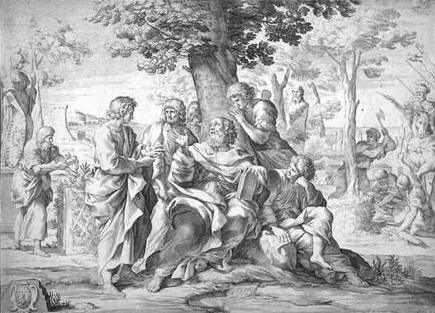The thoughts that we think and the deeds that we do are connected in ways that we do not fully comprehend. I often found myself wondering if the act of thinking a thought was actually a deed and if an action in pursuance of an object carried the idea of the object within it, in which case an act was also a thought partially. Can we really act independent of reason? Apparently we cannot because there has to be a reason for us to do anything at all. A person who performs an action without a reasons is clinically insane in the medical and social sense of the expression.
So, what is the relationship between thought and action, or do the two part of each other at a certain level. After all, when we entertain a thought, we do actively think about it when we can choose to reject the thought and think about something else, or so do something completely disconnected with the thought. But when we pursue a thought voluntarily and willfully despite the choice of acting otherwise, we do exercise a choice. And this exercise of will makes the act of thinking as much of an act as, say, walking. It is, therefore, not difficult to conclude that in thinking we act.
The next question is whether or not an act carries a thought, and is, for that reason, partially a thought. One is incapable of acting without a cause, for no human being acts without motivation. And motivation implies a goal, a purposefulness of some kind. Human beings do not do anything without a reason. Therefore, every act carries an intent and it is under the guidance of this intent that we do what we do. So, every act that we perform is aimed at achieving something or at achieving a smaller goal as part of the process to achieve the bigger goal or a set of goals. Due to this infusion of thought in every action, all human actions are extensions of thought only.
So, where do we draw the line between thought and deed? Strictly speaking, all deeds are actualization of thoughts, and are, therefore, not independent of thought. We cannot act without thinking, but we can think without acting although the act of thinking is also an act. Idle thinking is possible, and so is idle acting. Thoughts are actions of a mental kind whereas actions are the actualization of the thoughts. But the origin of all actions is necessarily thought, but the origin of all thoughts is not necessarily action. We think and act, but we do not act to think. So, while strict segregation of thought and deed is not possible, it is possible to conclude that thought is primary while deed is secondary in nearly all cases though exceptions – few and far between – can always be there.
Originally published on Ezine Articles on May 11, 2013.





